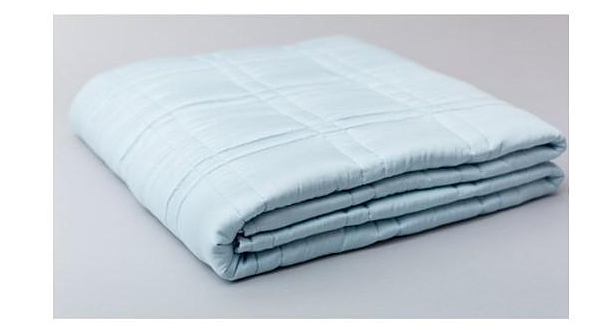Sustainability April 12, 2022
FTC Fines Walmart, Kohl’s for Bogus Bamboo Marketing
The retailers must pay a total of $5.5 million for claiming bamboo-derived rayon textiles were environmentally friendly.
What’s the price of greenwashing? About $5.5 million, according to the Federal Trade Commission.
The FTC is asking courts to penalize Kohl’s Inc. and Walmart Inc. $2.5 million and $3 million respectively for making deceptive green claims and using misleading advertising. Both retailers were falsely marketing dozens of rayon textile products as bamboo, saying the so-called bamboo textiles were made using eco-friendly processes, according to the FTC. In reality, converting bamboo to rayon requires the use of toxic chemicals and results in hazardous pollutants, the FTC notes.
The $5.5 million penalties are the largest the FTC has ever made in this area. The complaints and proposed orders were filed by the U.S. Department of Justice on behalf of the FTC.

Walmart claimed items like this weighted blanket were made of bamboo, rather than rayon derived from bamboo, which goes against the FTC’s Textile Act and Rules.
“False environmental claims harm both consumers and honest businesses, and companies that greenwash can expect to pay a price,” said Samuel Levine, director of the FTC’s Bureau of Consumer Protection.
The FTC’s complaints against Kohl’s and Walmart are similar in their structure and allegations. According to the complaints, since at least January 2015, Kohl’s, headquartered in Menomonee Falls, WI, and Walmart, based in Bentonville, AR, have each marketed at least two dozen items as made of bamboo in both product titles and descriptions. In addition, the companies have marketed some of the “bamboo-derived” products as providing general environment benefits, such as being produced “free of harmful chemicals, using clean, non-toxic materials.”
Kohl’s falsely represented that sheets, pillows, bath rugs and towels were made wholly or in part from bamboo rather than rayon, according to the FTC. The retailer described the items using terms like “sustainable,” “highly renewable” and “environmentally friendly.” Kohl’s also advertised some of the products online with a “Cleaner Solutions” seal that linked to a “Sustainability at Kohl’s” webpage.
Walmart made false bamboo claims in promoting sheets, towels, blankets and nursing bras, according to the FTC complaints. The retailer used phrases like “eco-friendly & sustainable” and “renewable and environmentally sustainable” in marketing the items.
As the complaints allege, Kohl’s and Walmart’s supposed “bamboo” textiles are made of rayon derived from bamboo, which was not disclosed to consumers, in violation of the FTC Act and the Textile Act and Rules. Further, the complaints allege the claimed environmental benefits of the products are false and misleading because the rayon manufacturing process uses toxic chemicals and results in the emission of hazardous pollutants.
The term bamboo can be used in labeling or advertising a textile product only if it doesn’t include the type of chemical processing needed to make rayon, according to the FTC. Even if the rayon is made using cellulose from bamboo, it must be described by an appropriate term recognized under the FTC Textile Rules, such as calling it “rayon made from bamboo.”
The FTC warned Kohl’s, Walmart and other companies in a January 2010 letter that selling rayon products as “bamboo” was against the law and expressly stated that it was putting them on notice that “the failure to correct improper labeling or advertising of textile products could subject the company to civil penalties.”
The FTC wants both Kohl’s and Walmart to shut down bogus bamboo marketing claims and stop claiming that a textile product is made of bamboo or bamboo fiber unless it can be substantiated. The companies must also stop making unsubstantiated green marketing claims; for products made of bamboo or bamboo fiber, they must stop claiming it’s produced free of harmful chemicals, using nontoxic materials or in a way that’s safe for the environment or nonpolluting. Any environmental claims about bamboo-derived products must be substantiated.
Greenwashing, when companies make misleading or unsubstantiated environmental claims about their products or business practices, can be a problem for promotional products companies seeking sustainable choices for their clients. Education and asking questions of suppliers is one way to help combat it. Environmental experts also recommend businesses foster transparency, setting measurable sustainability goals and tracking progress toward them.
In a blog post, the FTC notes that the charges against Kohl’s and Walmart are an example of how it plans to use its penalty offense authority. In addition to its notice of penalty offense for textiles, the commission has revived additional notice of penalty offense first issued in the ’70s and ’80s for things like energy savings, fur products, home improvement products, auto rentals, bait and switch sales practices, toys, and weight loss.

Promo for the Planet is your destination for the latest news, biggest trends and best ideas to help build a more sustainable and socially-responsible industry.
